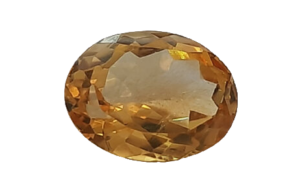Citrine, a radiant gemstone with a warm, golden hue, takes the spotlight as the birthstone for November. This captivating gem boasts a rich history, an array of symbolic meanings, and a unique charm that has captivated jewelry enthusiasts for centuries. Join us as we delve into the world of citrine, unraveling its origins, metaphysical properties, and timeless allure in this concise blog post.

Buy Here
1. A Gem of Sunshine
Citrine is a variety of quartz known for its sunny disposition. Its name is derived from the French word “citron,” meaning lemon, due to its vibrant lemon-yellow to golden-orange color. This natural gemstone’s warm and cheerful appearance has earned it the moniker “The Sunshine Stone.”
2. A Gem with Ancient Roots
Citrine has a storied history that dates back thousands of years. Ancient civilizations believed it possessed the power to ward off negative energies and promote vitality. The ancient Greeks and Romans crafted intricate carvings and talismans from citrine, considering it a symbol of abundance and success.
3. Abundance and Prosperity
Citrine is often associated with abundance and prosperity. It is believed to attract wealth, success, and good fortune into the lives of those who wear it. Many individuals turn to citrine for motivation, creativity, and the manifestation of their dreams and desires.
4. Metaphysical Properties
In the world of metaphysics, citrine is thought to carry the energy of the sun. It is said to boost one’s confidence, stimulate mental clarity, and promote a positive outlook on life. Citrine is also considered a powerful cleanser and regenerator, capable of dissipating negative energies and promoting inner balance.
5. Jewelry and Fashion
Citrine’s captivating golden hue makes it a popular choice for jewelry, particularly in rings, pendants, and earrings. Its versatility allows it to complement various styles, from casual to formal, making it a favorite among jewelry designers and wearers alike.
6. Rarity and Sources
Natural citrine is relatively rare compared to other quartz varieties. Most citrine on the market today is heat-treated amethyst or smoky quartz, which transforms the stone’s color to the desirable golden shade. Citrine can be found in various parts of the world, with Brazil being a prominent source.